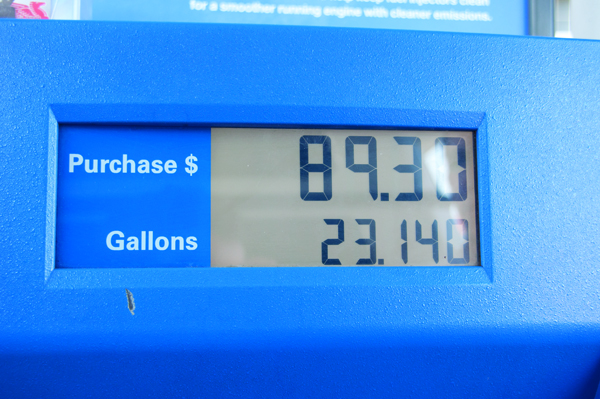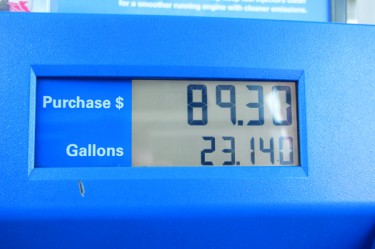

Commuter students’ wallets are taking a hit as gas prices continue to soar.
Gas prices have been on the rise since September and have increased steadily over the past few months. According to the U.S. Energy Information Administration, the price per barrel went from $89.25 up to $111.49 between Feb. 18 and April 1. According to AAA, the national average hovered at $3.73 per gallon of regular fuel on April 7, up from $3.52 just one month ago.
Miami, notorious for its high gas prices, has not gone unaffected, with the average cost around $3.78. Near campus, prices tend to be even higher. According to GasBuddy.com, a site that compiles prices so people can find the lowest gas in their area, the lowest priced gas near UM ($3.60) was found at the Marathon Gas Station at the corner of Bird Road and Ponce de Leon Boulevard. Most stations were not as generous. The highest came in at a whopping $3.95 at the Shell Gas Station at U.S. 1 and SW 80th Street, just a few blocks south of campus.
The rising costs have been felt acutely by the approximately 6,500 undergraduate commuter students, some of whom live as far away as Broward County. While some students do not pay for their own gas, many who do can feel their pockets growing light.
“The rising gas prices are making me ration my paycheck more and more,” said freshman Sara Marin, who works as a tutor around the city. “Now that I have to spend $5-$10 more than what I normally would just to fill up my tank, I can’t really afford to go out as much as I used to… any bit of extra money goes towards fueling up my car. It’s very frustrating.”
However, there are some students who, despite paying for their own gas, have not been affected. For those who live close to campus, high gas prices are not a concern.
“I’m only filling up once every three weeks,” said junior Mike Fleischood, who lives only a mile away from the Coral Gables campus. “The fact that they are rising hasn’t changed my driving habits in the least.”
Despite consumer frustrations, gas stations in the area do not seem to be struggling with the price hikes. Some companies, such as BP and Shell, have even partnered with stores such as Winn-Dixie to improve their sales.
“We had a promotion with Winn-Dixie and people bought a lot of gas,” said Betti Gonzalez, manager of the BP Gas Station on U.S. 1. “That’s over now. But if locals are not buying gas, we have tourists, so things balance out.”
Part of the reason for the price hike is the turmoil in the Middle East, specifically Libya. While the country produces only 2 percent of the world’s crude oil, Libya produces “sweet crude,” which is clean, low in sulfur and easy to refine. In fact, many European refineries can only process sweet crude, causing a much more drastic effect on prices.
But the problem does not end with Libya. According to Jessica Brady, spokesperson and public relations manager for AAA South, the problems are numerous, including the recent tsunami in Japan, China’s increased demand for oil, and soon, hurricane season and summer driving season.
“At this moment in time there is far too much uncertainty in the oil market to even try and gauge where oil prices are going,” Brady said. “2010 was a very atypical year and 2011 is starting that way as well. Usually when we hit September prices start to go down… but since 2010 prices have increased steadily.”
With hurricane season and tourist season imminent, many fear that gas prices will continue to shoot up.
“It is very likely that we will touch the $4 mark in the summer time,” Brady said.
Margaux Herrera may be contacted at mherrera@themiamihurricane.com.





